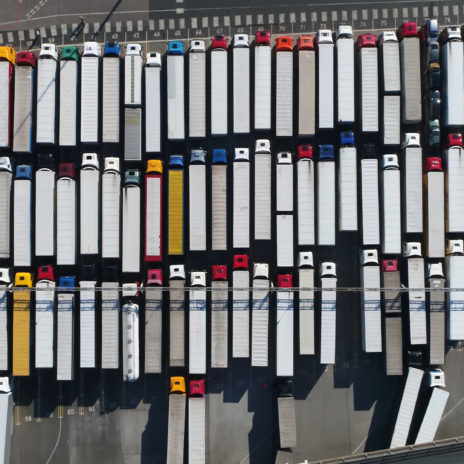
Changes to customs: what to expect
Since January 1st 2022, full customs controls have taken effect and businesses are facing major changes in the way that they deal with customs clearance. There is a lot of concern surrounding waiting times and goods getting stuck in UK ports. A recent survey by the Federation of Small Businesses indicates that only a quarter of small British importers are prepared for full customs declarations.
Are you feeling overwhelmed by the customs impact of Brexit? It is important as a business owner that you stay compliant and ready to face the ongoing challenges. OSE are here to help you navigate the changing customs landscape to ensure supply chain continuity.
In this blog post, our team of specialists have answered some frequently asked questions surrounding the new procedures so that you know exactly what to expect regarding the revised border requirements:
1. What exactly are the customs changes that are in force in 2022?
From 1 January 2022, all exports and imports have had to have a GMR (Goods Movement reference) number. This is a mandatory requirement that a haulier must complete for all goods that are being carried on their vehicles. EXS (safety and security declarations) for imports is mandatory from 1 July 2022 and is currently in force for exports out of the UK.
2. How will they impact me as a trader?
Since leaving the EU, a number of steps are required to ensure that goods can move in and out of Europe. Prior to this all goods moved on just CMR ‘Convention relative au contract de transport international de merchandises par route’. This is a condition of carriage of goods by road. Whilst this still applies on all international movements, the requirement for Export and import declarations has meant that express deliveries can potentially take longer. Traders must be able to create all documentation or work with a supplier that has the knowledge and expertise to ensure that all goods are exported correctly and that no excess duties and taxes are levied against them.
3. How can I benefit from the TCA Zero Tariff?
The Trade and Cooperation Agreement (TCA) means that the goods you import or export may benefit from a reduced rate of Customs Duty (tariff preference). UK and EU importers can claim tariff preference if they have one of the following proofs of origin:
- A statement on origin – this must be made out by the exporter to confirm that the product originates in the UK or EU
- The importer’s knowledge – this option allows the importer to claim tariff preference based on their own knowledge of where the goods they’re importing originate from
(even if the goods you import from the EU are eligible for tariff preference, normal VAT rules will still apply.)
4. What are the Rules of Origin (RoO)?
Put simply, the Rules of Origin mean the country in which the goods have been produced or manufactured. This may not be the country of shipping, but the RoO must be clearly stated on the Commercial Invoices for the goods.
5. Who must submit an exit summary declaration?
All goods leaving the UK must have an EXS declaration or Safety and security declaration and this has been mandatory since October 2021. At present, this does not apply to imports to the UK. However, traders should be prepared for July 1st 2022 when this will come into force.
6. How are commodity codes affected?
Commodity codes are used worldwide to classify goods that are imported and exported. They are standardised up to 6-digits and reviewed by the World Customs Organisation every 5 years. You need to provide Tariff codes on your invoices: 8-digit for Export, 10-digit for Import.
You can read more about finding correct HS Tariff Codes here.
7. How can OSE help?
As a haulier, OSE has been moving goods into and out of Europe for many years and has a wealth of experience in this area. In the run up to Brexit, we anticipated the need for specialist knowledge and expertise in customs formalities and created a customs team that would take care of all customers export and import requirements. We have invested in a customs system that allows us to create the export declarations and have built a network of agents that can assist in the clearing of goods into the countries of destination. We will also work with other customer’s specified agents as a matter of course.
In order for all export and imports to run smoothly, we will need the following:
- Clear Instructions from the customer with agent’s details, commodity and CPC codes, and Incoterm.
- Commercial invoices
- Packing lists
- DGNs Dangerous goods notes if applicable.
We will then be able to create the following for you:
- An export declaration
- A GMR (Goods Movement Reference)
- A T1 ( TAD transport accompanying Document)
- An Import Clearance
- A S8 Proof of export.
If you are unclear on any of the above or you would like to discuss any aspect of customs checks after Brexit, including guidance for specific goods, then our team of specialists at OSE are on hand to help. Contact us for a friendly chat here.
